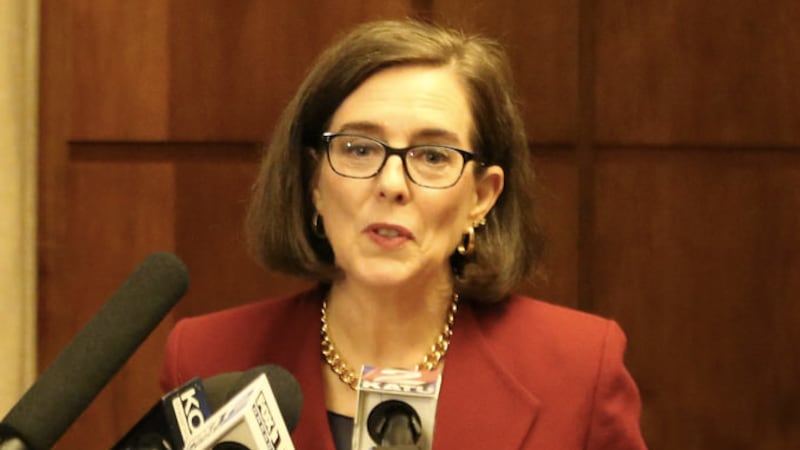Oregon's fiscal mess is as confusing as it is improbable.
In the midst of the lowest recorded unemployment in state history and record-high tax revenues, lawmakers have been struggling to fill a $1.5 billion budget deficit.
They got some help with that deficit today as the state Office of Economic Analysis released its quarterly revenue forecast.
The good news is that state economists believe the state will record significantly more revenue than projected in the last forecast. The less good news, at least for the budget: tax revenues are so robust that Oregon's unique "kicker" is likely to return that new found revenue to taxpayers next year. That, of course, is potentially good news for individual taxpayers, who will get some of their money back.
Here's state economists' explanation:
"With increases in the outlook for personal income taxes, estate taxes and lottery sales, net General Fund resources are up $370 million relative to the March forecast," state economists Mark McMullen and Josh Lehner write. "Excluding corporate taxes, General Fund revenues are now 2.4% above the 2015 Close of Session estimate. If this holds through the end of the biennium, an income tax kicker of $408 million would be triggered for tax year 2017."
Oregon voters approved the "kicker" in 1979. If revenues for the two-year state budget cycle exceed the forecast by 2 percent, the overage is returned to taxpayers the following year in the form of a personal income tax credit. Here's what the calculation looks like today—although economists caution that circumstances could change between now and the June 30 end of the fiscal year and budget cycle.
"Although the May outlook calls for a personal income tax kicker, it is not a sure thing," the forecast says. "Large swings in the forecast between now and the end of June have been commonplace in past years."
Brown addressed the budget paradox in her response to today's forecast.
"This is the good news: our economy is humming; unemployment is low; and state revenue is a higher than expected," Brown said in a statement. "Here's the bad news: this doesn't change the fact that Oregon still has a structural deficit. This means in the long term, whether the economy is good or bad, the state will struggle to pay for education, public safety, child welfare, and health care."

